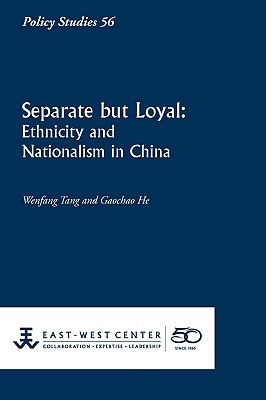
- We will send in 10–14 business days.
- Author: Wenfang Tang
- Publisher: East-West Center
- Year: 2010
- Pages: 72
- ISBN-10: 1932728864
- ISBN-13: 9781932728866
- Format: 15.6 x 23.4 x 0.4 cm, minkšti viršeliai
- Language: English
- SAVE -10% with code: EXTRA
Reviews
Description
Beijing has faced the challenge of granting autonomy to ethnic minorities but maintaining their loyalty to the Chinese state. This paper tackles complex issues of ethnic identity and nationalism among the most politically sensitive groups in China: the Uyghurs, Tibetans, Mongols, Huis, and Kazaks. Specifically, it draws on original research conducted by the authors, the 2006-2007 Chinese Ethnicity Surveys, to explore the extent to which ethnic minorities are sinicized and the meaning of being Chinese. With an analysis of current arguments about whether national identity in contemporary China is based on a Han-dominant Confucian tradition or a multiethnic society that originated during the Qing empire, Separate but Loyal examines ethnic identity through the lens of ethnic-language learning, religious practices, and interethnic marriage. It also provides an illuminating comparison of perceptions of group identity and national identity in China with those in the United States and Russia. The survey points to some surprising findings, including the fact that ethnic minorities in China showed higher levels of both ethnic identity and national identity than U.S. and Russian respondents. These findings seem to support the argument that national identity is based on the multiethnic Chinese state, and they offer a rare empirical perspective on how the government can maintain the balance needed to preserve its legitimacy.
- Author: Wenfang Tang
- Publisher: East-West Center
- Year: 2010
- Pages: 72
- ISBN-10: 1932728864
- ISBN-13: 9781932728866
- Format: 15.6 x 23.4 x 0.4 cm, minkšti viršeliai
- Language: English English
Beijing has faced the challenge of granting autonomy to ethnic minorities but maintaining their loyalty to the Chinese state. This paper tackles complex issues of ethnic identity and nationalism among the most politically sensitive groups in China: the Uyghurs, Tibetans, Mongols, Huis, and Kazaks. Specifically, it draws on original research conducted by the authors, the 2006-2007 Chinese Ethnicity Surveys, to explore the extent to which ethnic minorities are sinicized and the meaning of being Chinese. With an analysis of current arguments about whether national identity in contemporary China is based on a Han-dominant Confucian tradition or a multiethnic society that originated during the Qing empire, Separate but Loyal examines ethnic identity through the lens of ethnic-language learning, religious practices, and interethnic marriage. It also provides an illuminating comparison of perceptions of group identity and national identity in China with those in the United States and Russia. The survey points to some surprising findings, including the fact that ethnic minorities in China showed higher levels of both ethnic identity and national identity than U.S. and Russian respondents. These findings seem to support the argument that national identity is based on the multiethnic Chinese state, and they offer a rare empirical perspective on how the government can maintain the balance needed to preserve its legitimacy.


Reviews